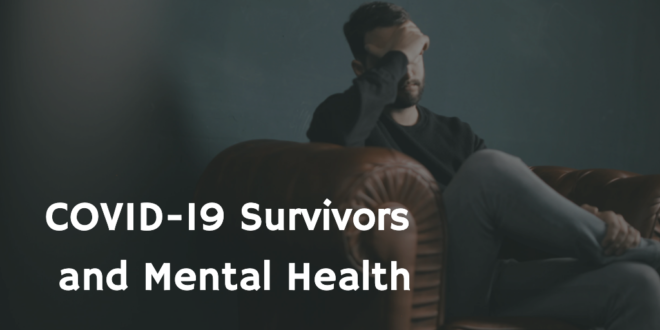
I am writing from Israel where most of the adult population has been vaccinated from COVID-19, yet a significant number of adults are holding out –– joining a global anti-vaccination brigade based on fear of vaccines, and a Bill Gates conspiracy theory. Sometimes you want evidence to show your friends and loved ones to help them make the decisions about getting vaccinated. A new study from Oxford, England has found a serious link between surviving a COVID-19 infection and brain health.
Researchers at Oxford looked at 230,000 American patients that survived COVID and found that one in three suffered significant neurological effects within three months. Some 34% had been diagnosed with neurological or psychiatric illnesses during that time.
The pandemic could lead to a wave of mental and neurological problems, scientists said last week.
Anxiety and depression were the most common diagnoses of the 14 disorders they looked at. Those hospitalized with COVID had a 7% chance of suffering from a stroke, and 2% from dementia.
“Although the individual risks for most disorders are small, the effect across the whole population may be substantial,” said Paul Harrison, a professor of psychiatry at Oxford University who co-led the work.
The new findings are published in the Lancet Psychiatry journal, and compared COVID-19 patients to comparison groups of people who recovered from flu or other respiratory infections over the same time frame. The scientists said COVID-19 had a unique impact.
“As a result, health care systems need to be resourced to deal with the anticipated need, both within primary and secondary care services,” Harrison said.
Until now, there have been no large-scale data examining the risks of neurological as well as psychiatric diagnoses in the six months after COVID-19 infection.
The most common diagnoses after COVID-19 were anxiety disorders (occurring in 17% of patients), mood disorders (14%), substance misuse disorders (7%), and insomnia (5%). The incidence of neurological outcomes was lower, including 0.6% for brain haemorrhage, 2.1% for ischaemic stroke, and 0.7% for dementia.
Dr Max Taquet, a co-author of the study from Oxford said: “Our results indicate that brain diseases and psychiatric disorders are more common after COVID-19 than after flu or other respiratory infections, even when patients are matched for other risk factors. We now need to see what happens beyond six months. The study cannot reveal the mechanisms involved, but does point to the need for urgent research to identify these, with a view to preventing or treating them.”
Dr Jonathan Rogers, who was not involved in the study, from University College London (UCL), UK, said: “This study points us towards the future, both in its methods and implications.
“Researchers need to be able to observe and anticipate the neurological and psychiatric outcomes of future emerging health threats by use of massive, international, real-world clinical data. . . Sadly, many of the disorders identified in this study tend to be chronic or recurrent, so we can anticipate that the impact of COVID-19 could be with us for many years.”



